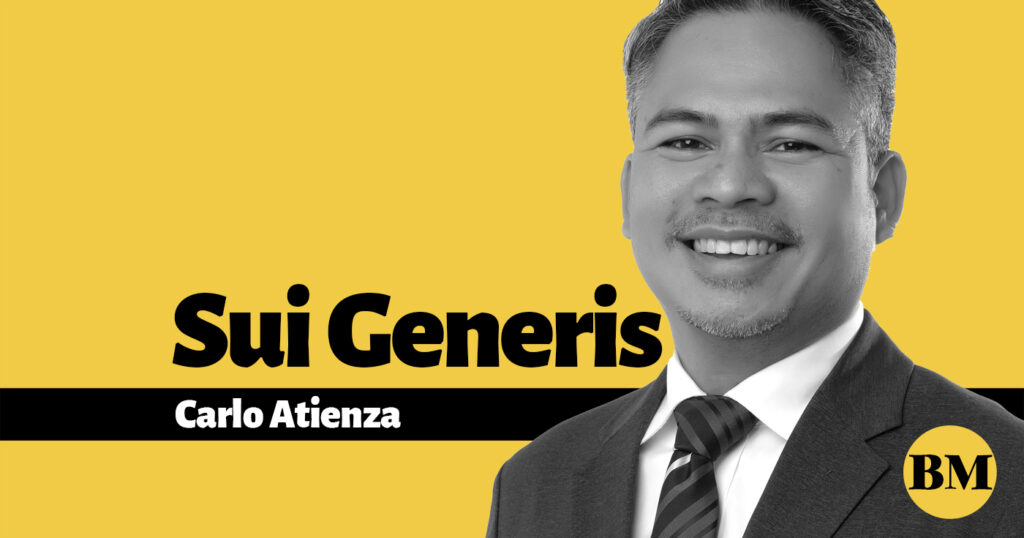
EVER notice that there is always this one person in your barkada who is not necessarily the leader, but who everybody follows? In the workplace, it is the same. There are people who are not in executive roles but when people want an opinion, they would go to this person. You see, not everyone in position is the most influential leader in an organization. It takes more than position to influence others. Why is this so?
Social psychologists John French and Bertram Raven studied why some leaders have influence even if they do not possess official titles, and why people readily accede to others’ influence. They discovered that people, whether in position or not, draw on different sources of power to affect others. These can be categorized in two major sources—positional and personal. Positional sources of power are coercive, reward, legitimate, and information powers, while personal sources include expert, referent, and connection powers.
I came across these sources of power when I attended a webinar last week by the American Management Association on “Harnessing Power Towards Stronger Collaboration.” I realized there are different sources of power and as people managers, you can draw on so many sources to expand your influence. Let us first look at the positional sources of power.
Coercive power is the leader’s ability to mete out punishments or sanctions. People follow these leaders for the sake of avoiding punishment. These kinds of leaders use penalties as a means to control their team and force them to follow whatever the leader wants. Punishments can come in the form of disapproving leaves, being assigned to difficult projects, or the leader being hostile.
On the other hand, reward power is a leader’s ability to give rewards in the form of recognitions or material benefits, or to provide opportunities for promotion in order to make people comply. Positive reinforcement goes a long way as a means of sustaining best practices. But this is also tricky because when overused, your team might also develop an entitlement mindset where they will start thinking only of what is in it for them, more than what is good for the entire team. Both coercive and reward power need to be used carefully for it to retain its effect.
Legitimate power comes from a person’s job title or position. A position naturally carries authority with it. A president of a country, the chief operating officer of an organization, or a people manager all carry authority within their own jurisdictions and even beyond if they can tap into other sources of power. When I became a manager, I had to start thinking in terms of what the team can accomplish more than my own professional goals. I realized
that my power comes from my responsibility of ensuring my team delivers. Legitimate power entails you being responsible for the welfare of the people under you.
Others derive their authority from information power which comes from a person’s access to or control of certain information. Different departments in your organization are subject matter experts or are given the tasks of safeguarding proprietary information. As gatekeepers of information, they have the power to dictate which ones can benefit from what they have. People who have this power can even bring down an entire organization with the information they have so they are accorded special benefits and privileges.
Aside from these positional sources of power, leaders can also tap into their personal sources of power.
Expert power is derived from a person’s skill, expertise, or experience in a particular field. These leaders draw on their acquired knowledge and proficiency as a means of influencing others decisions, and are naturally asked on matters concerning their expertise. Their achievements speak for themselves and show their dedication to their craft. However, their influence is limited to their subject area. They can expand their influence by drawing from other power sources.
Have you ever encountered people who are naturally charismatic and can command an entire room with little to no effort? This is called referent power which comes from a person’s perceived trustworthiness and integrity. Of course, this is all about perception but how you speak and relate to other people comes from who you are as a person. The words you use, your manner of talking to others, and even your body language reflect who you are and tell people if they can trust you or not.
Aside from the six sources of power identified by French and Raven, another source of power is your connections and how you can use your network to help others connect with each other. This is especially helpful in a big organization where you constantly work with other offices and departments, and you need to maintain good professional relationships with everyone. People who have this power are asked to point people in the direction of the person who can help them.
In the webinar, the facilitator asked the participants if they can identify other sources of power and there were some insightful answers like family name, generational wealth, and even fake news. People use a combination of all these sources of power to influence others to get the work done. Your role as a people manager is to choose which ones are the most appropriate to tap into.
But when it comes down to the most important source of power, the leader’s integrity is the most valuable. So even if you have all these sources of power, it all boils down to who you are even if no one is looking. And people are naturally drawn to the leaders they can trust and who have a proven track record of achievements and helping others. Your integrity will be proven by your accomplishments which will show whether you have used your influence to enrich other people’s lives, or if you only used it for personal gain.
Image courtesy of Austin Distel on Unsplash
